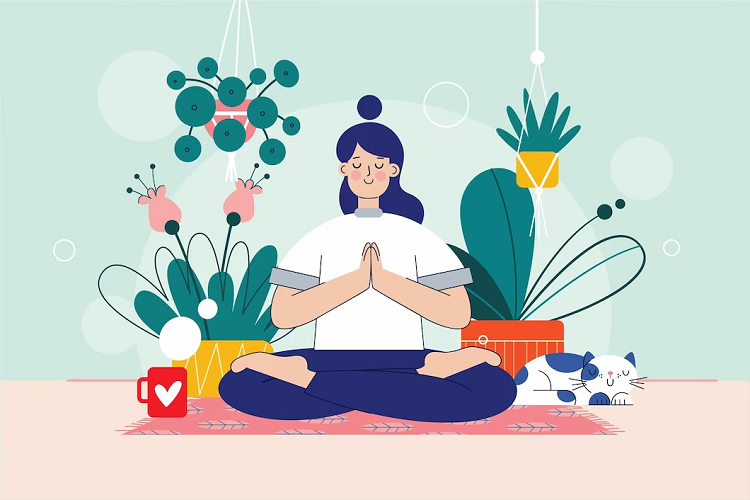Have you ever considered that your health and well-being go beyond just your physical body? While exercise and a healthy diet are important, they are only a small piece of the puzzle. Holistic health is a more comprehensive approach to well-being that considers the whole person – mind, body, and spirit. It takes into account all aspects of a person’s life, including their environment, relationships, and emotions.
Holistic health recognizes that everything is interconnected and that physical health cannot be separated from mental or emotional health. When one aspect of our health is off-balance, it can affect our overall well-being. Holistic health seeks to address the root cause of an issue rather than just treating symptoms, leading to a more sustainable and effective approach to health.
In this article, we’ll dive deeper into what holistic health is and why it’s so important. We’ll also explore the many benefits of a holistic approach to health and wellness. From improving physical health to reducing stress and promoting emotional well-being, read on and find the way to the best version of yourself!
Understanding the basics
Holistic health is a philosophy that considers the whole person when treating illness or maintaining health. It acknowledges that the mind, body, and spirit are interconnected, and that imbalances in one area can affect overall health. Holistic health is rooted in several key principles:
- Whole-person care: Instead of treating just the symptoms, it focuses on the person as a whole, considering their physical, emotional, and spiritual needs.
- Prevention: It emphasizes the importance of preventative measures to maintain good health and prevent illness.
- Natural approaches: It advocates for natural remedies and non-invasive treatments whenever possible.
- Mind-body connection: It recognizes that the mind and body are closely linked, and that mental and emotional health can affect physical health and vice versa.
- Personalized care: It considers each person’s unique needs and experiences, tailoring treatments accordingly.
Holistic health differs from traditional medicine in that it considers the whole person, not just their physical symptoms. It often includes alternative therapies, such as acupuncture, meditation, and herbal remedies, as well as lifestyle changes to promote overall health and well-being.
The benefits of the holistic approach
One of the primary benefits of holistic health is improved overall well-being. By addressing the whole person, holistic health can improve physical, emotional, and mental health. For example:
- Physical health: Healthy diet and exercise can improve physical health and reduce the risk of chronic diseases.
- Emotional health: Therapy and meditation can help manage stress and improve emotional well-being.
- Mental health: Cognitive-behavioral therapy and mindfulness can help manage mental health conditions, such as anxiety and depression.
This approach can also help with chronic conditions and diseases. By addressing the root cause of the problem, holistic health can improve symptoms and promote healing. For example, acupuncture and herbal remedies have been shown to help manage chronic pain, while lifestyle changes, such as diet and exercise, can help manage diabetes and heart disease.
In addition to improving physical and mental health, holistic health can improve relationships and overall quality of life. By addressing the whole person, it can improve communication skills, increase empathy, and promote a sense of purpose and fulfillment.
Implementing Holistic Health Practices
If you’re interested in this approach, there are many practices you can incorporate into your daily routine. Here are some ideas:
- Mindfulness: Practicing mindfulness, such as meditation or deep breathing exercises, can help manage stress and improve mental well-being.
- Nutrition: Eating a balanced diet, rich in whole foods, can improve physical health and reduce the risk of chronic diseases. Here’s a recipe you could follow: riceselect.com/recipe/curry-risotto-baked-salmon.
- Exercise: Regular exercise can improve physical health, reduce stress, and improve mood.
- Alternative therapies: Acupuncture, massage therapy, and herbal remedies can help manage chronic pain and promote healing.
- Self-care: Taking time for yourself, such as taking a relaxing bath or practicing yoga, can improve emotional well-being and reduce stress.
Remember, holistic health is about finding what works best for you. You don’t have to do everything all at once. Start small and build from there.
Holistic Health for Different Stages of Life
Whether you’re a child, teenager, adult, or senior, there are unique ways that you can approach holistic health practices to optimize your well-being.
- For children and teenagers, holistic health practices can be an important foundation for their future health and well-being. Encouraging them to eat a healthy and balanced diet, get regular exercise, and prioritize sleep can set them up for a lifetime of good health. Additionally, introducing them to mindfulness practices, such as meditation or yoga, can help them develop tools for coping with stress and anxiety.
- As adults, we often face a unique set of challenges when it comes to our health and well-being. Juggling work, family, and social obligations can leave little time for self-care. However, incorporating holistic health practices into our daily routine can help us feel more balanced and energized. Prioritizing regular exercise, eating a balanced diet, getting enough sleep, and practicing stress-management techniques can all be effective ways to support our overall health.
- As we enter our later years, it’s important to approach holistic health practices with a focus on maintaining mobility, independence, and quality of life. Regular exercise, such as walking or yoga, can help maintain muscle mass and prevent falls. Eating a nutrient-dense diet, staying socially active, and engaging in mentally stimulating activities can all contribute to a vibrant and fulfilling life.
No matter what stage of life you’re in, incorporating holistic health practices into your daily routine can be an effective way to optimize your overall health and well-being. By taking a whole-person approach to health, you can support yourself in every aspect of your life.
It’s important to remember that holistic health is a journey and not a destination. Taking small steps towards incorporating health practices into our daily routine can lead to significant improvements in our overall well-being over time. It’s never too late to start prioritizing our health and well-being, and by doing so, we can create a more fulfilling and vibrant life for ourselves.
Whether it’s starting a daily meditation practice, taking a yoga class, or simply prioritizing a healthy diet and exercise routine, every step towards holistic health is a step in the right direction.




